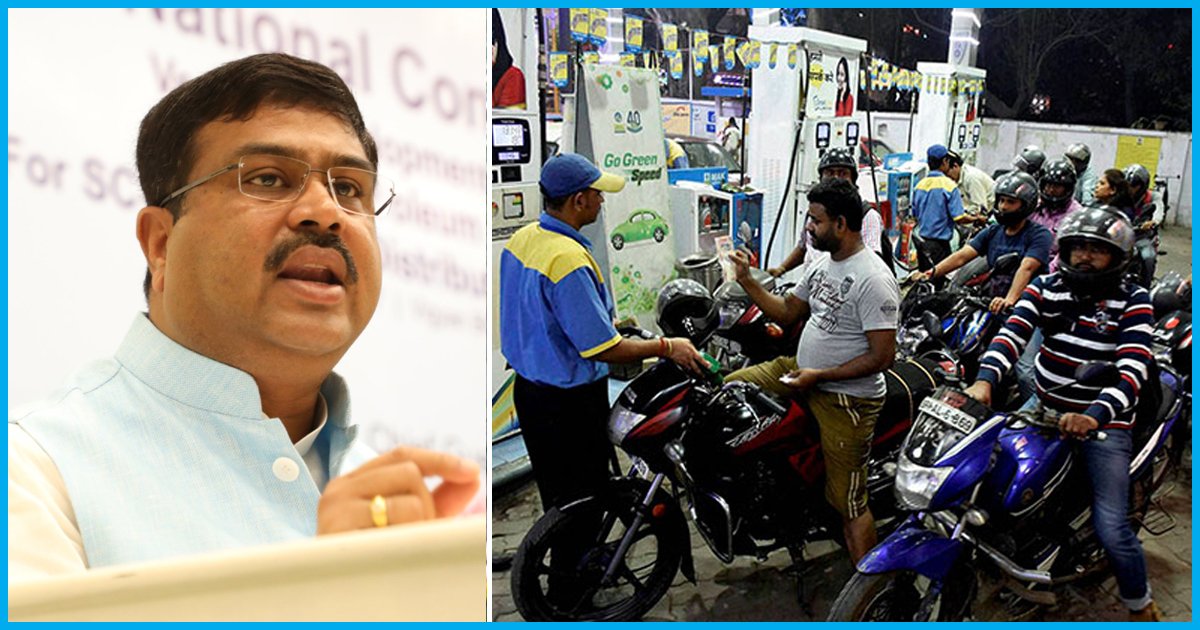
Oil Ministry Plans To Sell Fuel Online; Is It Safe?
28 Sep 2017 1:29 PM GMT
Editor : Pooja Chaudhuri
The only fiction I enjoy is in books and movies.
Minister of Petroleum and Natural Gas Dharmendra Pradhan announced on September 27 that an e-commerce portal will soon be created for customers to get home delivery of petrol and diesel.
Using the technological advancements in the IT & Telecom Sector we will soon be starting online home delivery of Diesel & Petrol.
— Dharmendra Pradhan (@dpradhanbjp) September 27, 2017
The idea of doorstep delivery of fuel was first pitched in a consultative meeting held in April in Srinagar. It was being argued as a viable model to increase digital transactions as well as shorten queues at petrol pumps, following which the Oil Ministry had tweeted about its plans.
“Options being explored where petro products may be door delivered to consumers on pre booking” @dpradhanbjp (1/2)
— Petroleum Ministry (@PetroleumMin) April 21, 2017
“This would help consumers avoid spending excessive time and long queues at fuel stations” @dpradhanbjp (2/2)
— Petroleum Ministry (@PetroleumMin) April 21, 2017
Recently, while addressing the India Mobile Congress in Delhi, Oil Minister Pradhan said, “Can we connect oil with IT and telecommunications? We plan to put all petroleum products on e-commerce platform,” Pradhan said while addressing the India Mobile Congress in Delhi, reported The Economic Times.
The model will start with diesel, a senior official in the petroleum ministry said as reported The Hindu. “It is not as flammable, and takes a lot of effort to catch fire,” he added.
The online portal will allow oil marketing companies to provide door-to-door delivery of diesel, even as the government is still working on how to extend this to petrol while maintaining strict safety norms.
“Petrol and diesel were the mai ones since the delivery of other oils such as engine oils can be easily done using e-commerce,” the official explained.
Presently, only LPG is delivered at home, while consumers have to visit retail outlets for vehicular fuels such as petrol, diesel, CNG, and also engine oils.
Is it safe to sell petroleum products online?
At the moment, the government has only made an announcement and not explained how it plans to achieve selling petroleum products online.
It might have a similar model as MyPetrolPump which operates in Bengaluru. The startup delivers fuel by taking orders on its portal. Their model involves the usage of ‘mini fuel refueler’ vehicles that buys fuel from a nearby gas station and delivers it to the customer.
Door delivery of petrol for the first time in Bengaluru – pic.twitter.com/mXZ6iOYjym
— D Roopa IPS (@D_Roopa_IPS) June 20, 2017
Thank you who supported us and made their first orders…We hope we have delivered values and your expectations! pic.twitter.com/hVJUsHQnbY
— MyPetrolpump (@MyPetrolpump) June 19, 2017
They do not store any fuel.
While selling fuel might save time for many commuters, its safety, especially in large quantities cannot be guaranteed.
The Petroleum Ministry has stringent rules on loading, unloading, refuelling and transportation of fuel. There are limits set on how much and who is purchasing fuel, in addition to tanker specifications, cleaning and storage. Even if all the regulations are complied with, there might still be dangers of accidents of the fuel tanker, thus exposing the public to fumes. Since fuel is highly combustible, especially petrol, people’s lives might be a risk.
Moreover, if buying petrol becomes easier, miscreants might use to make petrol bombs. There is also the possibility of petrol being adulterated.
What does the law say?
As per the Petroleum Act, 1934 petrol (petroleum class A product), “No one shall import, transport or store any petroleum except in accordance with the rules made under Section 4.”
Section 4 says – “Central Government may make rules regulating import, transport and storage of petroleum prescribing various forms and conditions of licences, and also conditions subject to which petroleum may be stored.”
Therefore, it is legal to sell petrol online if the government so deems. However, the Petroleum and Explosives Safety Organisation had barred home delivery of petroleum products, citing safety reasons and deeming it illegal, News18 reported.
The Logical Indian hopes that before this model comes into practise, all the necessary precautionary measures are adhered to.
 All section
All section













